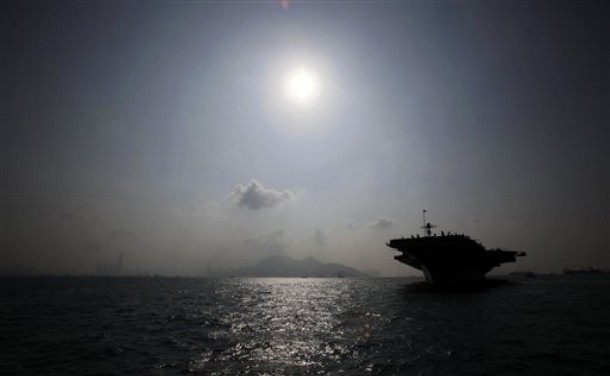Should we fight a war with Iran?

Via Justin Logan, the Heritage Foundation's James Phillips makes the case that the U.S. should go to war with Iran on behalf of Israel:
Washington should not seek to block Israel from taking what it considers to be necessary action against an existential threat. The United States does not have the power to guarantee that Israel would not be attacked by a nuclear Iran in the future, so it should not betray the trust of a democratic ally by tying its hands now...Given that the United States is likely to be attacked by Iran in the aftermath of an Israeli strike anyway, it may be logical to consider joining Israel in a preventive war against Iran. But the Obama Administration is extremely unlikely to follow this course. However, the Administration must be ready to respond to any Iranian attacks. It must prepare contingency plans and deploy sufficient forces to protect U.S. military forces and embassies in the Middle East; defend allies, oil facilities and oil tanker routes in the Persian Gulf; and target Iranian ballistic missile, naval, air force, and Revolutionary Guard forces for systematic destruction. In the event of a conflict, Iran's nuclear facilities should be relentlessly targeted until all known nuclear weapon-related sites are destroyed completely.
Perhaps not surprisingly, while Phillips spends a lot of time in a very long report arguing for why and how the bombs should fall on Iran, and why the U.S. must fight for Israel, he writes not a single sentence - not one - discussing what steps the U.S. should take after it subjects Iranian sites to "systematic destruction." Instead we're treated to the potential for Iranian retribution and why the U.S. must subject itself to such reprisals for Israel's sake and because a nuclear Iran would be a worse outcome than having both Iraq and Afghanistan destabilized, more U.S. troops killed, and a potentially recession-inducing naval showdown in Hormuz.
But I'm more interested in what happens after America attacks Iran. What if the government collapses? Do we occupy the country? Do we allow a power vacuum? Do we let a Revolutionary Guard commander assume control? A cleric? Could we exercise any control in Iran following an attack? And if the current regime hangs on and then redoubles their nuclear efforts, do we subject them to another pounding five years hence? As a famous general once observed, "tell me how this ends?"
We know from our rueful experience in Iraq that conservative defense intellectuals don't pay much attention to the immediate aftermath of a conflict (with the exception of Max Boot). It's apparently sufficient to start a war and then let the chips fall where they may. Not that we should have too much confidence in their predictive abilities on that front either, but it would be nice if those clamoring for a war with Iran could provide us with just a scintilla of analysis regarding U.S. policy in the aftermath.
(AP Photo)











